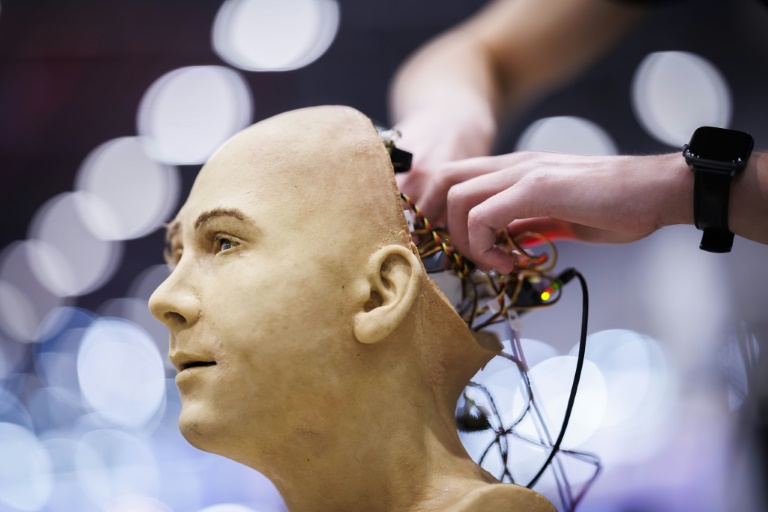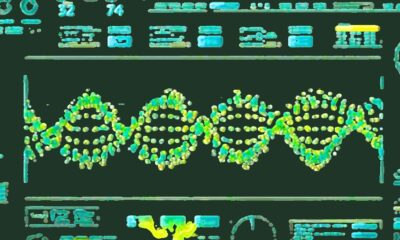Science
Scientists Discover Seven Dimensions of Memory to Enhance AI

Researchers at Skoltech have unveiled a groundbreaking mathematical model that reshapes our understanding of memory, suggesting that both humans and artificial intelligence (AI) could benefit from a system based on seven distinct sensory inputs. This innovative approach indicates that memory operates optimally within a seven-dimensional conceptual space, a finding that could have far-reaching implications for robotics and cognitive science.
The study, detailed in the journal Scientific Reports, explores how information is encoded and stored in the brain. The researchers propose that when each concept is represented by seven features, rather than five or eight, the capacity for distinct memories is maximized. This discovery opens new avenues for enhancing AI’s learning processes and improving robotic systems.
Understanding Engrams and Memory Encoding
Central to this research is the concept of “engrams,” which are identified as the fundamental units of memory. An engram consists of a sparse collection of neurons across various brain regions that activate simultaneously. Each engram embodies a concept, characterized by a specific set of features. For instance, the concept of a banana might include its colour, smell, taste, and texture, rendering it a five-dimensional object within the vast network of human memory.
This framework positions engrams as tangible representations of cognitive information that are physically imprinted in the brain. The study emphasizes that these memory units evolve over time, sharpening or diffusing based on sensory interactions with the environment, thereby influencing how we learn and forget.
The Seven-Dimensional Model: Implications for AI and Robotics
Lead researcher Nikolay Brilliantov articulated that the mathematical findings reveal a tendency for engrams within a seven-dimensional space to reach a stable state. “After a transient period, a ‘mature’ distribution of engrams emerges, which then persists over time,” Brilliantov stated. This means that when conceptual space dimensions are limited to seven, the potential for storing distinct engrams is maximized.
This research challenges existing notions of memory and suggests a framework that could enhance AI capabilities. Brilliantov explained that maximizing the capacity of this conceptual space allows for a deeper understanding of the world: “The greater the capacity of the conceptual space, the richer the overall comprehension of concepts.” The number seven, as revealed by this study, stands as a persistent characteristic of memory engrams, independent of the specific sensory stimuli.
Brilliantov also highlighted the significance of this finding in relation to consciousness and memory, noting that advancing theoretical models of memory could provide valuable insights into the human mind. Furthermore, such research could facilitate the recreation of human-like memory systems in AI agents, potentially transforming the field of artificial intelligence.
The implications of this research extend beyond theoretical knowledge, potentially influencing the design of more sophisticated robotic systems capable of more complex learning and memory retention. As the field of AI continues to evolve, understanding the nuances of human cognition will be essential for developing technologies that closely mimic human capabilities.
As this research develops, it promises not only to enhance our understanding of memory but also to pave the way for innovative advancements in robotics and artificial intelligence, making the concept of seven senses a focal point for future studies.
-

 Politics4 weeks ago
Politics4 weeks agoSecwepemc First Nation Seeks Aboriginal Title Over Kamloops Area
-

 World5 months ago
World5 months agoScientists Unearth Ancient Antarctic Ice to Unlock Climate Secrets
-

 Entertainment5 months ago
Entertainment5 months agoTrump and McCormick to Announce $70 Billion Energy Investments
-

 Science5 months ago
Science5 months agoFour Astronauts Return to Earth After International Space Station Mission
-

 Lifestyle5 months ago
Lifestyle5 months agoTransLink Launches Food Truck Program to Boost Revenue in Vancouver
-

 Technology3 months ago
Technology3 months agoApple Notes Enhances Functionality with Markdown Support in macOS 26
-

 Lifestyle3 months ago
Lifestyle3 months agoManitoba’s Burger Champion Shines Again Amid Dining Innovations
-

 Top Stories2 months ago
Top Stories2 months agoUrgent Update: Fatal Crash on Highway 99 Claims Life of Pitt Meadows Man
-

 Politics4 months ago
Politics4 months agoUkrainian Tennis Star Elina Svitolina Faces Death Threats Online
-

 Sports5 months ago
Sports5 months agoSearch Underway for Missing Hunter Amid Hokkaido Bear Emergency
-

 Politics5 months ago
Politics5 months agoCarney Engages First Nations Leaders at Development Law Summit
-

 Technology5 months ago
Technology5 months agoFrosthaven Launches Early Access on July 31, 2025





















